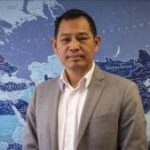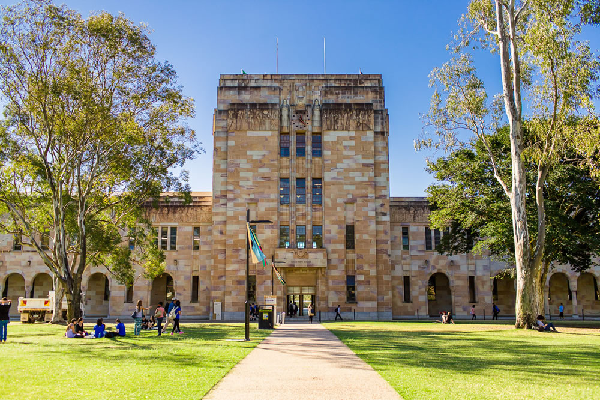I am therefore in favour of formulating effective and thoughtful policies and institutional measures to combat racism, both the institutional and everyday varieties.
However, I am deeply troubled by the preliminary findings over the state of censorship in “ Don’t talk or write about Palestine: it is a career killer: Preliminary Report of People’s Inquiry into campus speech on Palestine.”
As a professor of Asian Studies, I have taken a principled stance even if it means against my self-interest, when it comes to academic freedom and free speech without which no serious, professional inquiry is possible.
In cracking down on free speech in general and intellectual freedom Australian universities are moving in an authoritarian direction. Developing and enforcing any censorship policy regime, typically necessitates that governing political organizations, including court and law enforcement agencies, adopt varying shades of authoritarian methods in deciding both the contents of sensitive or controversial subjects and the manners in which they are publicly articulated. Under such censorship regimes, highly intrusive, and intensive acts of surveillance of academic discussions, debates, instructions, as well as extracurricular activities “naturally” ensue.
Throughout the world, universities in Australia have been highly regarded for their intellectually nurturing culture and institutional policies which encourage free inquiry, Certainly, this has been the widespread view of millions of Southeast Asian students and scholars whose home governments engage in authoritarian censorship on campus.
I can offer a brief testimony of how my peers and I viewed higher education in Australia. When I was in my Myanmar undergraduate years in the early1980’s, I had personally considered doing my post-graduate studies at an Australia university precisely for the reputation of Australian universities as intellectually nurturing.
We were under a brutal military dictatorship of General Ne Win. Naturally, the younger generation Myanmar university students were deeply unhappy with the repressive policies of the military government.[1]
Now, sadly, the emerging trend in Australian university governing bodies is toward systemic academic censorship, specifically on Palestine. Members of the academic communities are reportedly already subjected to surveillance, restrictions, intimidations, threats and punishments including loss of employment and termination of enrolment.
I see a parallel between Australia’s academic censorship targeting any criticism of the policies and practises of Israel towards Palestinians in both Gaza and throughout the Occupied Territories including the West Bank and East Jerusalem, and that of the Myanmar military dictatorship’s political repression targeted at members of Myanmar universities. The military junta was angry at the students and faculty members for expressing their discontent and rage against numerous rights violations and international state crimes that the junta troops were perpetrating.
Myanmar generals failed to self-reflect as to why there was so much criticism and widespread popular hatred towards them. Instead, they double-downed, ruining the country’s higher education sector with extreme academic censorship policies, enforced since 1960’s.
A word about “antisemitism”
I came from Myanmar, the first non-Western country to recognize the State of Israel which “the United Nations had imposed on the world”, in the words of the renowned legal scholar and international lawyer Philipe Sands, a British Jew who lost many Polish Jewish relatives in the Holocaust.
The former Prime Minister of Israel, Golda Meir, characterized Israel-Myanmar’s early bilateral relations as “a love affair”.
As a Burmese, I “naturally” grew up in Myanmar as a staunch supporter of Israel every time there was an armed conflict between Israel and its Arab neighbours. My godfather in the United States who presided over my marriage in Washington in 1999 was the late Louis Walinsky, who was also elected President of the World Jewish Council.

Maung Zarni with the late Lou Walinsky at his wedding in Washington, DC, 1999.
Despite my personal background, I have been extremely distraught and angry about Israel’s indefensible mass slaughter, starvation, physical destruction of Palestinian people in staggering numbers since 7 October 2023. In the last two years since Israel’s apocalyptic war of annihilation against 2.3 million Palestinian residents of Gaza, I have travelled twice to the Occupied Territories, including Kerem Shalom Crossing, the southern most Gaza crossing into Rafah City, near Philadelphi corridor, other Palestinian cities and towns, as well as Bedouin villages , increasingly under violent attacks by Jewish settlers armed with submachine guns and protected by Israel’s military and police.
What I witnessed during my visits to the Occupied Territories, is a vast ecosystem of suffocating apartheid, complete with over 500 K of apartheid wall (or “separation wall”, officially) designed by Israel to inflict on the entire population of Palestinian people, in Gaza, East Jerusalem and the West Bank what the late Johan Galtung called “structural violence”. Witnessing first-hand Israel’s extreme surveillance regime, sniper towers, check-points, the apartheid judiciary, tiered citizenships, and a deliberate system of economic deprivation to which over 5 million Palestinians in the Occupied Territories, and another 1.5 million Palestinian Israeli citizens inside 1948 Israel, has completely changed my decades-old favourable view of Israel as “the only democracy”.
Rather I come to share Professor Noam Chomsky’s informed view that “Israel is the most vicious (European) settler colony”. Chomsky has long pointed out that those who run the state of Israel view the world as “Jew-haters”, & hence discarded any regards for the UN system and the moral sentiments of the post-Holocaust world.
The centuries-old antisemitism is a quintessentially European racism. The growing global rage and loud protestations against Israel’s ongoing textbook genocide cannot be conflated with Europe’s age old fear and loathing of Jews . To do so is categorically intellectually dishonest.
Many leading Jewish public figures, from renowned Israeli scholars including Avi Shlaim of Oxford University, Illan Pape of Exeter University, and Omar Bartov of Brown University have openly condemned Israel, both the state and the members of that society who each year openly chant “Death to the Arabs”.
Those scholars do not equate global popular criticism of and opposition to Israel’s policies of annihilation and mass extermination with “antisemitism”. Indeed, leading civil society voices among the Jewish diaspora, for instance, those who have been leading protests and direct action in various US cities including New York, Boston, San Francisco openly say that it is Israel’s unconcealed genocidal war of extermination in Gaza that is the principal driver behind a sense of insecurity among the diaspora Jews.
Of course, the lack of condemnation by the Albanese government of Israel’s crimes in Palestine, including the ICJ labelled “plausible Genocide” and its material support for the Israeli Defence Force cannot be dismissed as contributing to attacks on synagogues and the rise of what are apparently antisemitic actions. Indeed, the student protests being condemned and penalized by University administrations would seem to be, in no small measure, against such support and intended to bring pressure on the governments to make such condemnation.

FORSEA’s Maung Zarni on the inter-faith delegation to Gaza, 29 Aug 2024
What is to be done?
If Australian governments and legislatures are seriously concerned about antisemitism, then the most logical and strategic approach would be to work with other UN member states to bring an end to the genocide. To bring in a sweeping regime of academic censorship and punishment will only lead to serious reputational damage worldwide to Australian higher education sector, which will in turn drive away prospective international students, particularly students from Southeast Asia, with its growing population of 550 million people. An economic cost on top of reputational loss.
In addition, such measures will not address the root cause of global popular rage against Israel – a UN labelled South Africa- like apartheid state, run by the ICC-wanted criminal Prime Minister.
Such censorship policy regime will be an act of national self-harm for Australia while failing to address the policy objective of confronting (allegedly rising) antisemitism.
Maung Zarni, PhD
Genocide Scholar & Co-founder, Forces of Renewal Southeast Asia
Former Visiting Lecturer, on racism and violence, Harvard University School of Public Health (2018)
Former Visiting Fellow, Department of International Development, Oxford University (2006-2009)
Note –
FORSEA board member and retired Australian scholar of law Gill Boehringer is involved in the People’s Inquiry into the academic censorship push by pro-Israel Zionists to equate any criticism against Israel as “antisemitic”. Professor Boehringer told FORSEA, “we have received over 150 submissions, and produced a Preliminary Report” which you can access here. https://www.palestineinquiry.com/preliminary-report
“We have this week held two very well attended public hearings at the University of Sydney and the University of Melbourne, to be followed by an online hearing. We will produce a Final Report as soon as we can put it all together.”
The waves of academic censorship attempts across western university campuses aimed to silence any criticism against Israel’s blatant breaches of international law, UN resolutions and post-Holocaust state norms are well-financed and coordinated between the Israeli government and the Zionist Jewish organisations in the diaspora. [See https://theconversation.com/antisemitism-plan-fails-on-a-number-of-fronts-a-contentious-definition-of-hate-is-just-the-start-261082] FORSEA cofounder and Burmese Scholar who resigned from his associate professorship in Asian Studies from Brunei University over the academic censorship on Myanmar genocide of Rohingya people a decade ago made his submission to People’s Inquiry.
NOTE:
[1] See my PhD thesis (1998) on the subject at the University of Wisconsin at Madison here. Knowledge, Control, and Power: Politics of Education Under Burma’s Military Dictatorship (1962-88) | Zarni’s Blog
___________________________________________
 A Buddhist humanist from Burma (Myanmar), Maung Zarni, nominated for the 2024 Nobel Peace Prize, is a member of the TRANSCEND Network for Peace Development Environment, former Visiting Lecturer with Harvard Medical School, specializing in racism and violence in Burma and Sri Lanka, and Non-resident Scholar in Genocide Studies with Documentation Center – Cambodia. Zarni is the co-founder of FORSEA, a grass-roots organization of Southeast Asian human rights defenders, coordinator for Strategic Affairs for Free Rohingya Coalition, and an adviser to the European Centre for the Study of Extremism, Cambridge. Zarni holds a PhD (U Wisconsin at Madison) and a MA (U California), and has held various teaching, research and visiting fellowships at the universities in Asia, Europe and USA including Oxford, LSE, UCL Institute of Education, National-Louis, Malaya, and Brunei. He is the recipient of the “Cultivation of Harmony” award from the Parliament of the World’s Religions (2015). His analyses have appeared in leading newspapers including the New York Times, The Guardian and the Times. Among his academic publications on Rohingya genocide are The Slow-Burning Genocide of Myanmar’s Rohingyas (Pacific Rim Law and Policy Journal), An Evolution of Rohingya Persecution in Myanmar: From Strategic Embrace to Genocide, (Middle East Institute, American University), and Myanmar’s State-directed Persecution of Rohingyas and Other Muslims (Brown World Affairs Journal). He co-authored, with Natalie Brinham, Essays on Myanmar Genocide.
A Buddhist humanist from Burma (Myanmar), Maung Zarni, nominated for the 2024 Nobel Peace Prize, is a member of the TRANSCEND Network for Peace Development Environment, former Visiting Lecturer with Harvard Medical School, specializing in racism and violence in Burma and Sri Lanka, and Non-resident Scholar in Genocide Studies with Documentation Center – Cambodia. Zarni is the co-founder of FORSEA, a grass-roots organization of Southeast Asian human rights defenders, coordinator for Strategic Affairs for Free Rohingya Coalition, and an adviser to the European Centre for the Study of Extremism, Cambridge. Zarni holds a PhD (U Wisconsin at Madison) and a MA (U California), and has held various teaching, research and visiting fellowships at the universities in Asia, Europe and USA including Oxford, LSE, UCL Institute of Education, National-Louis, Malaya, and Brunei. He is the recipient of the “Cultivation of Harmony” award from the Parliament of the World’s Religions (2015). His analyses have appeared in leading newspapers including the New York Times, The Guardian and the Times. Among his academic publications on Rohingya genocide are The Slow-Burning Genocide of Myanmar’s Rohingyas (Pacific Rim Law and Policy Journal), An Evolution of Rohingya Persecution in Myanmar: From Strategic Embrace to Genocide, (Middle East Institute, American University), and Myanmar’s State-directed Persecution of Rohingyas and Other Muslims (Brown World Affairs Journal). He co-authored, with Natalie Brinham, Essays on Myanmar Genocide.

